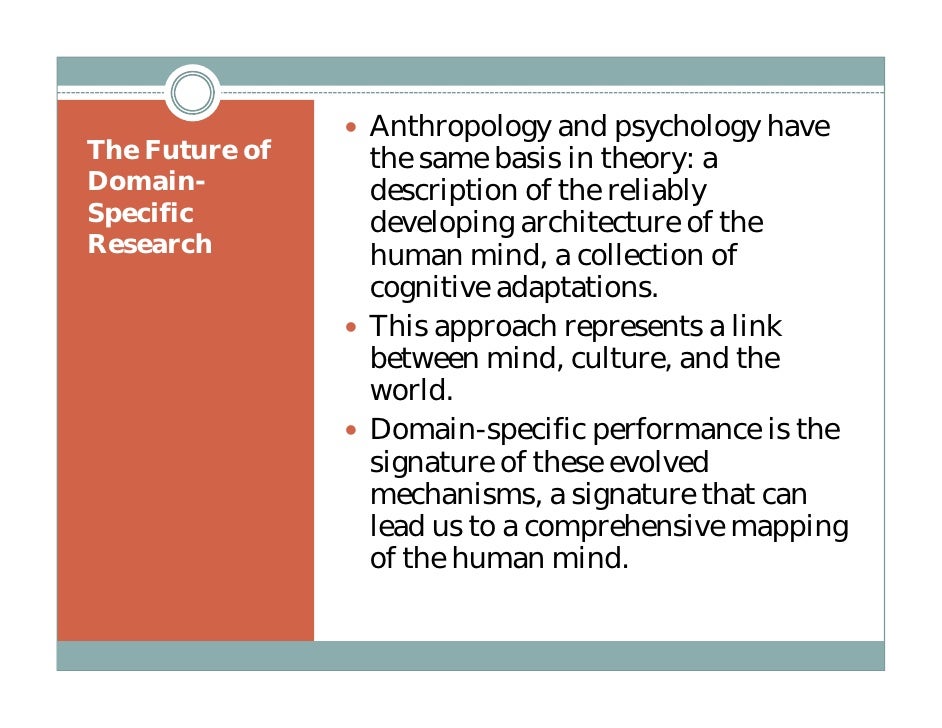Domain Specific Psychological Mechanisms

Evolutionary psychologist david buss has identified six characteristics of evolved psychological mechanisms buss 1995.
Domain specific psychological mechanisms. Evolutionarily informed research has suggested that brains are composed of a number of specialized domain specific mechanisms. These cognitive underpinnings are responsible for only one cognitive domain and aren t involved in the functioning of other domains. Domain specificity is a theoretical position in cognitive science especially modern cognitive development that argues that many aspects of cognition are supported by specialized presumably evolutionarily specified learning devices. Domain specificity proposes that there are underlying mechanisms and frameworks that are solely dedicated to only one specific cognitive domain.
Evolutionary psychology is betting that psychological adaptations have to be just as domain specific as physiological adaptations. By these criteria each epm exists as it does because 1 it was designed by natural selection to solve a specific adaptive problem. The psychological mechanisms that generate behavior are the proper focus of evolutionary theorizing. 185 these statements might give one the impression that there is a flurry of activity toward the mass creation of domain specific theories.
Ct ability conceptualized as being specific to a particular area s stems from the simple. Information processing appears to be an excellent model for the general class of problems solved by psychological mechanisms. Over the years it has occurred to me that the primary argument for the domain specificity of ct i e. Domain general learning theories of development suggest that humans are born with mechanisms in the brain that exist to support and guide learning on a broad level regardless of the type of information being learned.
The position is a close relative of modularity of mind but is considered more general in that it does not necessarily entail all the assumptions of fodorian. For example birds use different memory systems and different rules for remembering species song the taste of poisonous food and locations of food caches. Domain specificity is a theoretical position in cognitive science especially modern cognitive development that argues that many aspects of cognition are supported by specialized presumably evolutionarily specified learning devices. Domain specific theories of learning and development have been far more successful than classic general theories producing an advance to psychological theory and educational practice.
Domain general learning theories also recognize that although learning different types of new information may be processed in the same way and in the same areas of the brain. Darwinian algorithms are supposed to be mental modules in the sense defined by fodor.


















